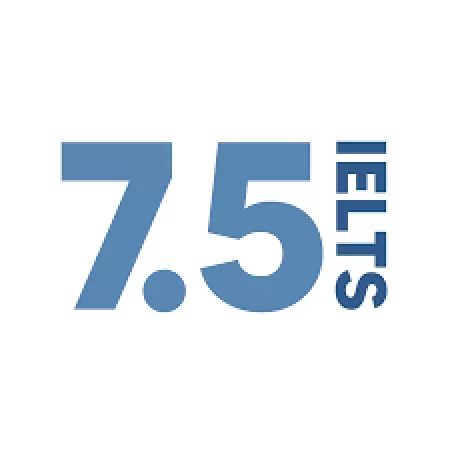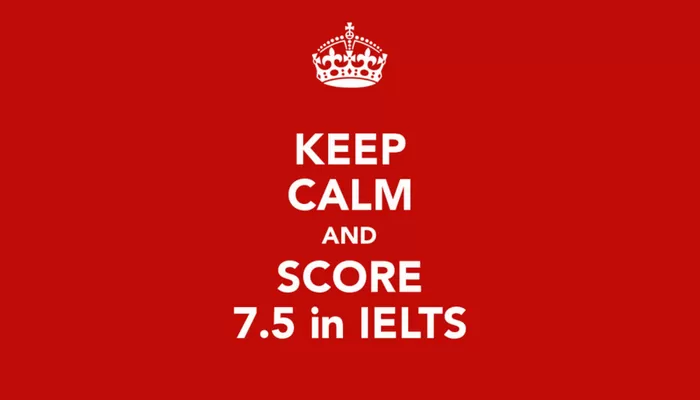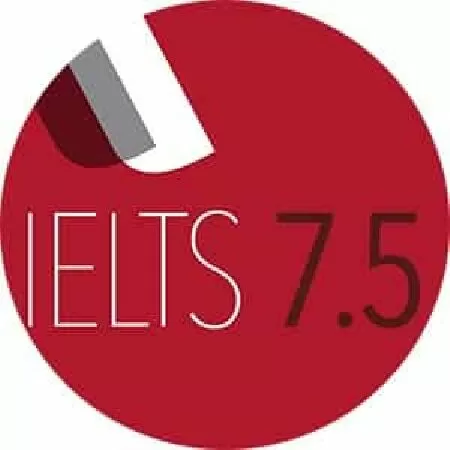Top 15 những câu hỏi Ielts Writing khó nhất và câu trả lời mẫu band 7.5+ không thể bỏ qua
- 249 views
IELTS (International English Language Testing System) là một trong những kỳ thi đánh giá năng lực tiếng Anh phổ biến nhất trên thế giới. Trong đó, kỹ năng Viết (Writing), đặc biệt là phần Task 2, đóng vai trò quan trọng khi yêu cầu thí sinh viết một bài luận học thuật để trình bày quan điểm cá nhân về một vấn đề xã hội, giáo dục hoặc môi trường.
1
Chấp nhận hay thay đổi nghịch cảnh

Some people believe that it is best to accept a bad situation, such as an unsatisfactory job or shortage of money. Others argue that it is better to try and improve such situations. Discuss both views and give your opinion.
In life, people often face unpleasant situations, such as a disappointing job or financial difficulties. While some argue that it is better to accept these as part of life, others believe in striving for change. This essay will discuss both perspectives before presenting a personal viewpoint.
On the one hand, accepting unfortunate circumstances can be seen as a realistic and pragmatic approach. Some individuals, especially those in disadvantaged positions, may not have the means to improve their conditions. For example, a factory worker with limited education might not have the option to switch careers easily. In such cases, acceptance can reduce stress and allow individuals to focus on what they can control.
On the other hand, striving for improvement reflects human resilience and ambition. History has shown countless examples of individuals who overcame adversity through perseverance. For instance, people who pursue night classes or start a side business while working full-time demonstrate that change is possible with determination. This mindset encourages personal growth and societal progress.
In my opinion, while acceptance may bring short-term peace, continuous effort to improve one’s situation is ultimately more empowering. It fosters a sense of purpose and opens up opportunities that would otherwise remain inaccessible.
2
Lãng phí thực phẩm trong xã hội hiện đại

In many countries, people throw away a lot of food from restaurants and shops. Why is this happening? What can be done to reduce food waste?
Food wastage has become a pressing issue in many developed and developing countries, particularly in the hospitality and retail sectors. This essay will explore the reasons behind this problem and propose some effective solutions.
One primary cause is consumer behavior. Many people tend to over-order in restaurants or purchase more than they need due to promotional campaigns such as "buy one get one free." Moreover, the desire for aesthetically perfect produce leads supermarkets to discard fruits and vegetables that are perfectly edible but slightly blemished. Additionally, poor inventory management contributes to wastage when items expire before they are sold or used.
To tackle this, both systemic and individual changes are necessary. Governments could introduce stricter regulations requiring businesses to donate unsold food to charities. At the same time, public awareness campaigns can help consumers become more mindful about portion sizes and expiration dates. Furthermore, encouraging local farmers' markets and zero-waste grocery stores could foster a more sustainable food culture.
In conclusion, reducing food waste requires joint efforts from governments, businesses, and individuals. Through policy, education, and responsible consumption, significant progress can be made.
3
Thư viện công có lỗi thời trước Internet?

Some people think that public libraries are no longer necessary because of the Internet. To what extent do you agree or disagree?
The rise of the Internet has led some to believe that public libraries are becoming obsolete. While online access to information is undeniably convenient, I firmly believe that libraries still play a vital role in society.
On the one hand, the Internet offers vast quantities of information at our fingertips, making research and reading more accessible than ever. For tech-savvy users with reliable internet connections, this convenience might render libraries less essential.
However, libraries offer much more than just books. They serve as quiet study spaces, provide free access to resources for low-income individuals, and often host educational programs for communities. For example, children’s reading clubs or workshops on digital literacy are common services offered in modern libraries. Moreover, librarians can guide users to credible and relevant sources, which is increasingly important in the age of misinformation.
Therefore, while the Internet has changed how we access knowledge, libraries remain crucial as community-centered learning hubs. Rather than being replaced, they should evolve and coexist with digital technology.
4
Mất loài động thực vật hay các vấn đề môi trường lớn hơn?

Some people say that the main environmental problem of our time is the loss of particular species of plants and animals. Others say that there are more important environmental problems.
Environmental issues have become increasingly pressing in the modern era, and there is ongoing debate over which problem deserves the most attention. While some people argue that the primary concern is the extinction of specific plant and animal species, others believe broader environmental challenges are more urgent. This essay will explore both perspectives before presenting a personal viewpoint.
On the one hand, the loss of biodiversity is undeniably a serious concern. Every species plays a specific role in the ecosystem, and the extinction of even one can disrupt the balance of nature. For instance, the disappearance of pollinators like bees can drastically affect agricultural production and threaten global food security. Moreover, many species are disappearing due to human activities such as deforestation, poaching, and pollution, highlighting the moral obligation to protect the planet’s rich biological heritage. Preserving biodiversity also maintains genetic variation, which can be crucial in medical research and crop resilience.
On the other hand, other environmental issues may be even more pressing in terms of scale and impact. Climate change, for example, affects not just individual species but entire ecosystems and human societies. Rising sea levels, extreme weather events, and global temperature increases have the potential to displace millions of people and destroy infrastructure. Similarly, pollution—be it of air, water, or soil—poses immediate threats to human health and contributes indirectly to species loss. From this perspective, species extinction is seen as a symptom rather than the root problem.
In my opinion, while the extinction of certain species is deeply troubling and should not be ignored, the more fundamental issues such as climate change and pollution require greater global attention. Addressing these problems at their source would not only help prevent further extinctions but also ensure a more sustainable future for both humans and nature.
5
AI – Lợi ích hay mối nguy cho xã hội?

Some people believe that developments in artificial intelligence will have negative effects on society. Others believe AI will be beneficial.
Discuss both views and give your own opinion.
The rapid development of artificial intelligence (AI) has sparked both excitement and concern. While some argue that AI brings serious threats to society, others see it as a transformative force with enormous benefits. This essay will discuss both perspectives and explain why I believe AI, though potentially dangerous, can be a powerful tool if properly managed.
On one side of the debate, critics highlight the risks associated with AI. One of the most commonly cited dangers is job displacement. As automation and machine learning systems become more advanced, they are increasingly capable of performing tasks traditionally done by humans. For example, AI-powered chatbots and customer service tools are replacing entry-level workers in many industries. Moreover, there are ethical concerns surrounding AI decision-making in fields such as criminal justice, where bias in algorithms can lead to unjust outcomes. Another fear is the potential misuse of AI in surveillance, cyberwarfare, or even autonomous weapons.
On the other hand, AI also presents unprecedented opportunities. In healthcare, for instance, AI can analyze large datasets to detect diseases early and recommend personalized treatments. In education, intelligent tutoring systems can adapt to students’ needs, improving learning outcomes. Additionally, AI enhances productivity by handling repetitive tasks, allowing humans to focus on more creative and strategic work.
In my opinion, the future of AI depends entirely on how it is governed. Like any powerful tool, AI can be either beneficial or harmful depending on the intent and responsibility of its creators. With appropriate ethical frameworks and international cooperation, AI has the potential to enhance human life and solve complex global problems.
Phù hợp với bạn
23-07-2025 Roxana.Trần
14-07-2025 Thanh Thu
14-07-2025 Phong Cao Đặng Đình
29-05-2025 Thanh Thu
22-01-2024 Thanh Thu
